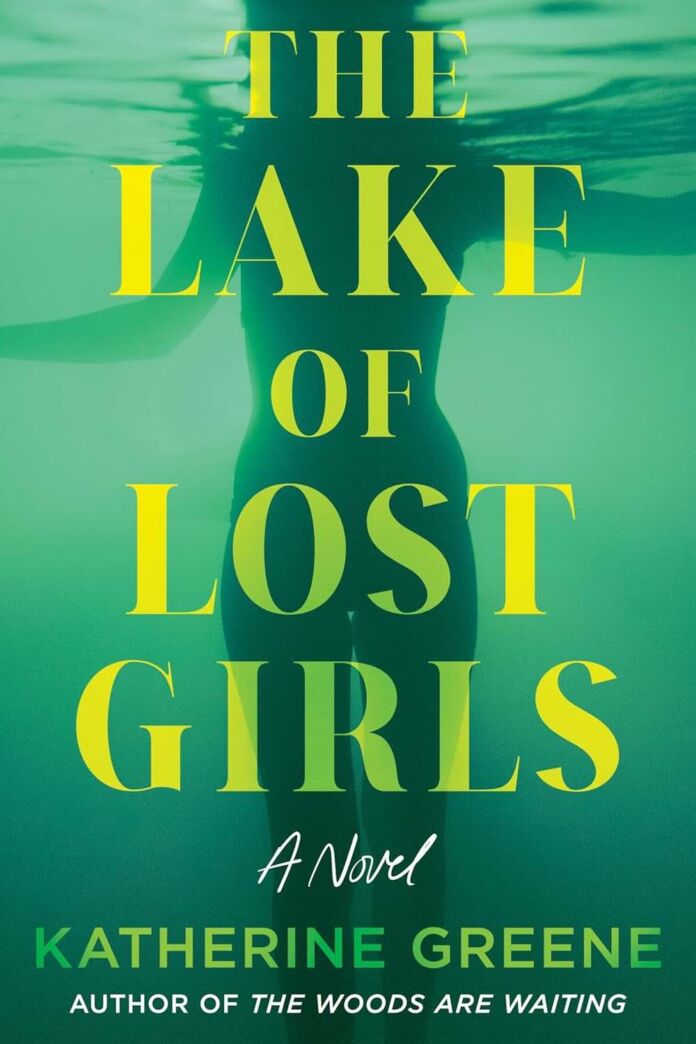Katherine Greene’s “The Lake of Lost Girls” is a meticulously crafted psychological thriller that deftly navigates between two timelines: 1998, when college student Jessica Fadley vanishes without a trace, and 2024, when her younger sister Lindsey finally begins unraveling the truth. The novel’s greatest strength lies in its ability to maintain suspense while delivering a profound commentary on family dynamics and the true crime genre’s impact on real victims’ stories.
The authors (A. Meredith Walters and Claire C. Riley, writing under the pen name Katherine Greene) demonstrate remarkable skill in creating an atmosphere of mounting dread that permeates both timelines. The story’s setting—the small town of Mt. Randall, North Carolina, and its hill-perched Southern State University – becomes a character in itself, with the ominously named Doll’s Eye Lake serving as the perfect backdrop for this tale of buried secrets.
Writing Style & Structure
The novel employs an innovative structure, incorporating transcripts from a true crime podcast titled “Ten Seconds to Vanish” alongside conventional narrative chapters. This multimedia approach feels authentic rather than gimmicky, reflecting our current cultural obsession with true crime content while simultaneously critiquing it.
The alternating perspectives between past and present are handled with precision. Jessica’s chapters, set in 1998, carry a growing sense of inevitability, while Lindsey’s present-day narrative pulses with urgency. The authors excel at creating distinct voices for each sister—Jessica’s sections are tinged with a mounting darkness, while Lindsey’s chapters reflect her desperate need for closure.
Character Development
Strengths:
- The complex relationship between Jessica and her father Ben is masterfully portrayed, revealing layers of dysfunction that become increasingly disturbing
- Lindsey’s character arc from a woman defined by her sister’s absence to someone confronting painful truths is compelling
- Secondary characters like Daisy (Jessica’s roommate) and Ryan (Jessica’s boyfriend) are well-developed, each harboring their own secrets and motivations
Areas for Improvement:
- The mother’s character could have been more fully explored, especially given the family dynamics at play
- Some of the academic staff characters feel slightly stereotypical in their portrayal
Plot & Pacing
The novel’s pacing is one of its strongest elements. The authors maintain tension throughout, carefully releasing information in both timelines to keep readers engaged. The revelation that Jessica was not just a victim but potentially involved in darker activities creates a shocking twist that recontextualizes everything that came before.
Themes & Social Commentary
The book explores several compelling themes:
- The commodification of tragedy through true crime media
- The complex nature of sisterly bonds
- The ripple effects of family secrets
- The way institutions protect their own at the expense of justice
- The fine line between love and obsession
Critical Analysis
What sets “The Lake of Lost Girls” apart is its willingness to subvert reader expectations. While it begins as a seemingly straightforward missing person story, it evolves into something far more complex and morally ambiguous. The authors don’t shy away from difficult questions about complicity and the nature of evil.
Minor Criticisms
- Some readers might find the podcast sections occasionally interrupt the flow of the narrative
- A few plot points, particularly regarding the disposal of evidence, require suspension of disbelief
- The resolution, while satisfying, might be too neat given the messy nature of the story
Comparable Works
Fans of Gillian Flynn’s “Sharp Objects” and Alex Michaelides’ “The Silent Patient” will find similar themes of family dysfunction and psychological complexity here. The novel also shares DNA with Courtney Summers’ “Sadie” in its use of podcast elements to drive the narrative.
Final Verdict
“The Lake of Lost Girls” is a compelling addition to the psychological thriller genre. While it occasionally stumbles with minor plot conveniences, its ambitious structure, complex characters, and unflinching look at family dynamics make it a standout read.
For Readers Who…
- Enjoy dual timeline narratives
- Appreciate true crime elements in their fiction
- Like psychological depth in their thrillers
- Don’t mind darker themes and moral ambiguity
Impact & Significance
This novel makes a significant contribution to the current conversation about true crime media and its effects on both victims and society. It challenges readers to examine their own consumption of true crime content while delivering a gripping narrative.
About the Authors
Katherine Greene is the pen name of bestselling authors A. Meredith Walters and Claire C. Riley, who bring their combined expertise in psychological thrillers to create this compelling narrative. Their collaboration results in a seamless blend of styles that serves the story well.
The Lake of Lost Girls demonstrates their growth as storytellers, particularly in handling complex narrative structures and morally ambiguous characters. This book cements their place among contemporary thriller writers to watch.





